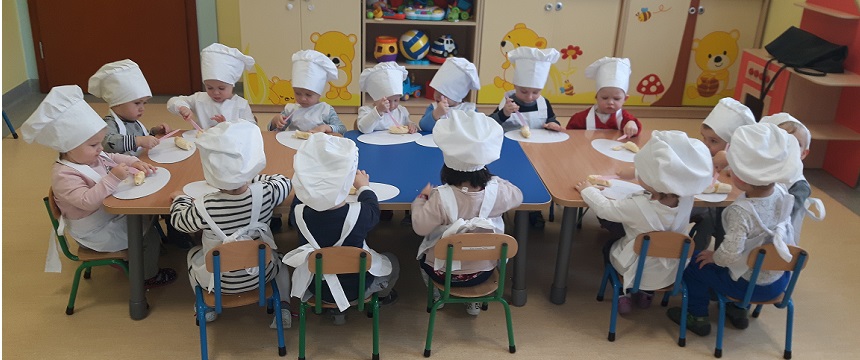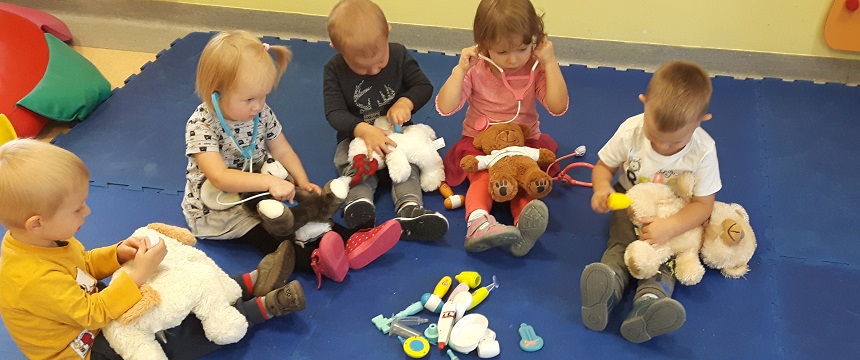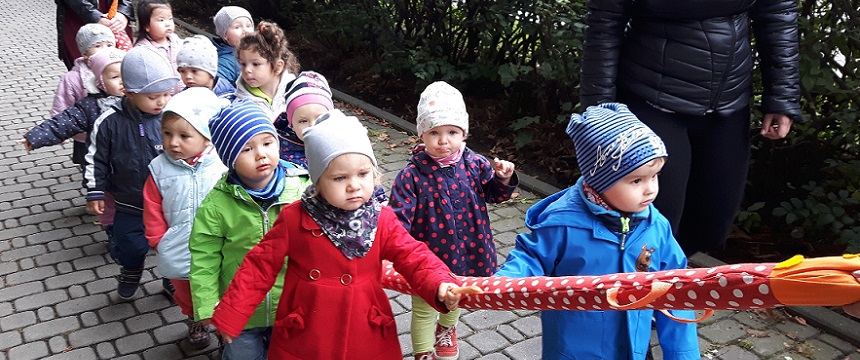Our day-care centre “Basic Steps” introduces children between the ages of 1 to 2,5 years old, to English with short lessons each day between 15-30 minutes through the CLIL method; introduces children to the English language, in a natural way, based on an innovative program which was prepared on the basis of the Polish curriculum under the auspices of the Ministry of National Education. These lessons are run by qualified English speaking teachers (native speakers) and Polish teachers who know English.
Children up to the age of 3 years old have a huge capacity for learning things so there are great advantages to learning English as a second language during this developmental phase. Even though some of this age group speaks their native Polish tongue, whereas others cannot, they will just learn English naturally alongside the main language which is highly advantageous for their future. People often assume that because a child may not be speaking or participating that they may not be learning, however, this is far from the truth because in actuality, they are extremely aware of what is happening and are absorbing and processing everything around them. With this in mind and due to the age of the children, most of them don’t really need an English teacher to learn, they simply need a playmate for a small amount of time each day to develop an acceptance and enjoyment of the English language. Therefore, we aim to build a warm and positive relationship with each child, which in turn, stimulates and motivates them to eventually communicate and learn the English language through a variety of ways which incorporates confidence, positivity, movement and sound with the use of repetition of daily routines, songs, simple actions, colourful objects and pictures, and basic communication through play. By making learning fun and keeping our expectations low with this age group, small progress in English (such as singing a song or repeating a word) are a celebration and will give you and your child a lot of pleasure!
In English Kindergarten "First Steps" we use CLIL (Content and Language Integrated Learning) which refers to teaching subjects through a foreign language.
By using CLIL method we:
- help our children schoolers to develop and improve their English,
- develop their language awareness (both Polish and English),
- provide our children with relevant (dependent on subject taught) vocabulary in English,
- develop children's intercultural awareness, broaden their knowledge about other countries, and prepare them to live in a multilingual and multicultural world,
We are fully aware that preschoolers have just started learning English and their level is not sufficient enough to learn only in English in the kindergarten. This should be done gradually as children grow up and develop their English. Then more can be taught incrementally in English – only in parts at the beginning and then mostly in English later.
Using our method we teach children in Polish according to the National Curriculum and then it is practiced and consolidated in English mainly by teachers who are "native speakers". For example children are taught in Polish about seasons of the year and it is the basis for the English teacher to prepare their lessons. It means, of course, close cooperation between both English and Polish teachers.
Children learn English in English from the very first classes no matter if this is a "native speaker" or Polish teacher who is teaching English. The language used during the lesson for communication (with the teacher or among the children) is English.
We use a combination of a number of methodological techniques to implement a communicative approach and adopt an "English only" principle. It is achieved by using pictures, real objects, music and songs, kinesthetic learning: role-playing and educational games so much liked by children. It helps all children (both younger and older) to break the language barrier quickly and easily.
The teachers use also elements of drama in teaching as well as pantomime, drawing or using gestures to explain the meaning of a word. Role-playing creates a three dimensional background in which words are used. Children memorize words or expressions conjoining them first with a picture, a gesture, background, feelings and emotions and later with a comment based on familiar English words.




